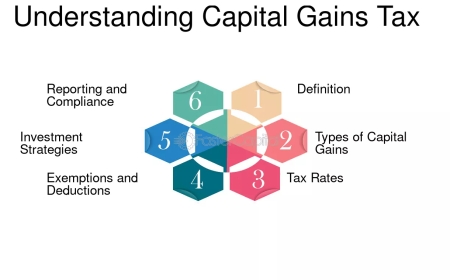Tips for Buying Your First Investment Property
Buying your first investment property can be a daunting task, but with the right guidance, it can be a great way to build wealth and secure your financial future. In this article, we'll provide you with tips and advice on how to get started with real estate investing, including how to finance your investment, what to look for in a location, and what type of property to invest in.
First and foremost, it's essential to have a solid understanding of your financial situation and what you can afford. This includes not only the purchase price of the property but also ongoing expenses such as mortgage payments, property taxes, insurance, and maintenance costs. You'll also need to consider the potential rental income and how it will impact your cash flow.
One of the most critical factors to consider when buying an investment property is the location. A good location can make all the difference in attracting high-quality tenants and maximizing your rental income. Look for areas with a strong demand for rental properties, a growing population, and a diverse economy. You should also research the local real estate market to determine if the area is experiencing growth and if property values are likely to appreciate.
Another crucial consideration is the type of property to invest in. Different types of properties, such as single-family homes, apartments, or commercial properties, have their unique advantages and disadvantages. For example, single-family homes are often easier to manage and maintain, while apartments can provide a higher rental income due to the multiple units. Commercial properties, on the other hand, can offer a higher potential for long-term appreciation in value.
Financing your investment property is also a critical aspect to consider. You'll need to explore your financing options, such as conventional mortgages, hard money loans, or private financing. It's essential to understand the terms and conditions of your loan, including the interest rate, repayment terms, and any fees associated with the loan.
In addition to these factors, it's also essential to consider the tax implications of owning an investment property. You may be able to deduct mortgage interest, property taxes, and operating expenses from your taxable income, which can help reduce your tax liability. However, you should consult with a tax professional to understand the specific tax implications of your investment property.
To ensure that you're making a smart investment decision, it's crucial to conduct thorough research and due diligence on the property. This includes reviewing the property's financial statements, inspecting the property for any potential issues, and researching the local market trends. You should also consider working with a real estate agent who has experience with investment properties to help guide you through the process.
Once you've purchased your investment property, it's essential to have a plan in place for managing the property. This includes finding and screening potential tenants, handling maintenance and repairs, and monitoring your cash flow. You may want to consider hiring a property management company to handle these tasks for you, especially if you're not experienced in managing rental properties.
In conclusion, buying your first investment property requires careful planning, research, and due diligence. By understanding your financial situation, researching the local market, and considering the type of property to invest in, you can make a smart investment decision that will help you achieve your financial goals. With the right guidance and expertise, you can navigate the process with confidence and start building wealth through real estate investing.
As you continue on your real estate investing journey, it's essential to stay informed and up-to-date on the latest market trends and strategies. This includes attending seminars and workshops, reading industry publications, and networking with other investors. By staying educated and connected, you can stay ahead of the curve and make informed decisions that will help you achieve your long-term financial goals.
Furthermore, it's crucial to have a long-term perspective when it comes to real estate investing. While there may be fluctuations in the market, real estate has historically been a stable and lucrative investment option. By holding onto your investment property for the long-term, you can ride out any market fluctuations and benefit from the potential long-term appreciation in value.
In addition to the potential financial benefits, owning an investment property can also provide a sense of pride and accomplishment. As a real estate investor, you'll have the opportunity to create value and make a positive impact on your community. Whether you're investing in a single-family home or a large apartment complex, you'll be providing much-needed housing for individuals and families.
Ultimately, buying your first investment property is just the first step in your real estate investing journey. With the right mindset, education, and support, you can build a successful and profitable real estate investment portfolio that will help you achieve your financial goals and secure your financial future.

















